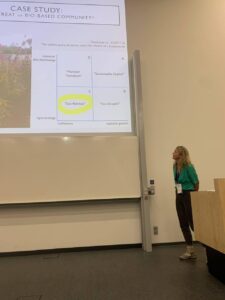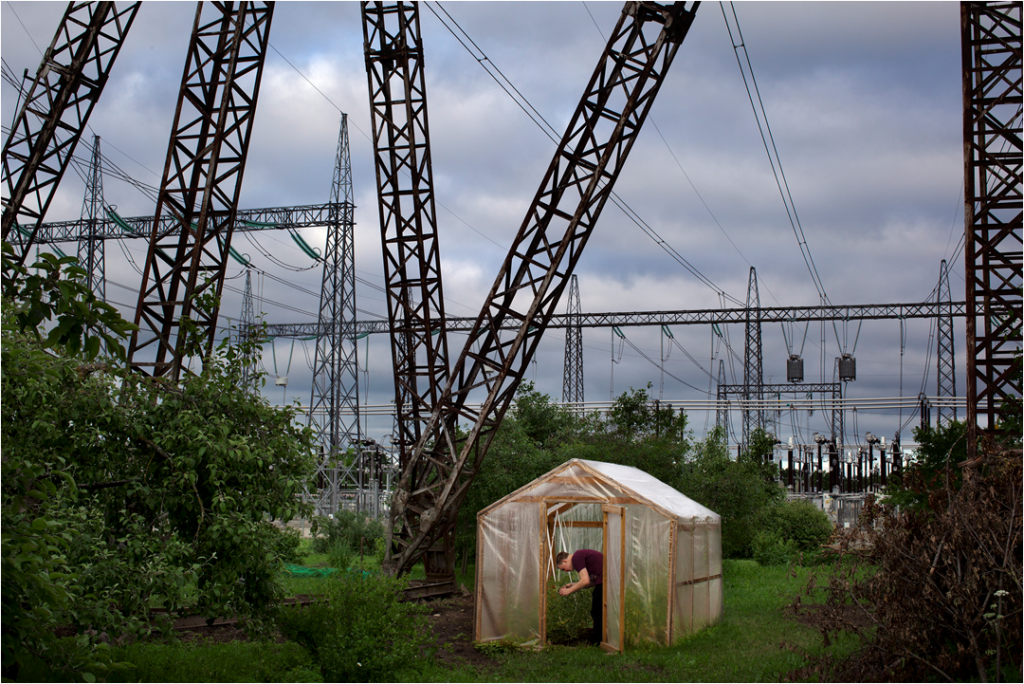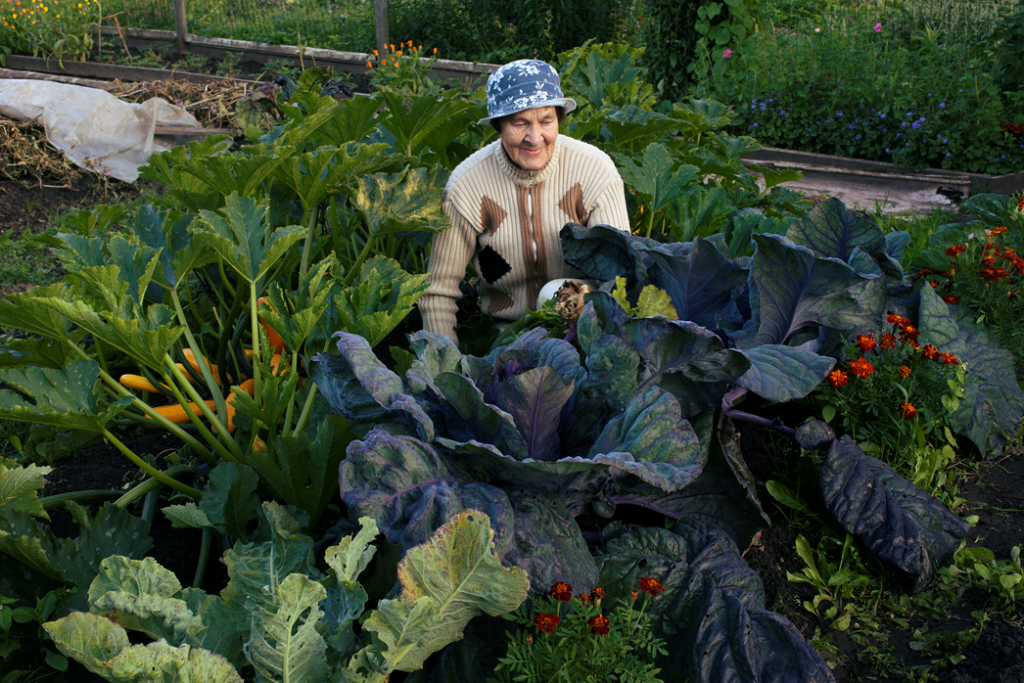
Das Thema ihres Vortrags: „Socio-ecological transformations and conflicts within rural bioeconomies – Insights from empirical case studies in Finland and Estonia“
Mehr Informationen zum Event: https://ngumweltsoziologie.wordpress.com/2022/08/17/574/


Das Thema ihres Vortrags: „Socio-ecological transformations and conflicts within rural bioeconomies – Insights from empirical case studies in Finland and Estonia“
Mehr Informationen zum Event: https://ngumweltsoziologie.wordpress.com/2022/08/17/574/
Lilian Pungas wird am Donnerstag, den 20. Oktober, ihre Forschungsergebnisse zum Thema „Dachas and food democracy – ambivalent roles during times of crisis?“ vorstellen.
Mehr Informationen hier: https://www.aesopsfp2022.com
Lilian Pungas spricht auf dem internationalen Workshop „Crisis, climate and challenges & opportunities of urban agriculture“ am 19. Oktober 2022, den sie zusammen mit ihrem zweiten Doktorvater Dr. Oane Visser am ISS in Den Haag im Rahmen ihres Doppel-Doktoratsstudiums mitorganisiert. Sie wird ihre neuesten Forschungsergebnisse und Analysen zu Food Democracy am Beispiel der ostestnischen Datschen vorstellen. Vor dem Hintergrund des Krieges in der Ukraine, der sich verschärfenden Inflation in Estland und der politischen Spannungen zwischen ethnischen Esten und Russen sind demokratische Entscheidungsprozesse in lokalen Lebensmittelsystemen wichtiger denn je. Vor diesem Hintergrund der zahlreichen Krisen untersucht Lilian, was einen guten „Food Citizen“ in einer postsozialistischen städtischen Peripherie ausmacht.
Mehr Informationen zum Event gibt es hier: https://www.iss.nl/en/events/crisis-climate-and-challenges-opportunities-urban-agriculture-2022-10-19
Philip Koch veranstaltet am 03. Oktober einen Transferworkshop an der Universidad de Jaén in Kooperation mit dem Instituto Universitario de Investigación en Olivar y Aceites de Oliva. Hierbei stellt er das Thema und erste Ergebnisse seines Disserationsprojekts über Mentalitäten in Olivensektor von Jaén vor. Diverse Expert*innen des Sektors präsentieren zudem ihre Perspektiven über zukünftige Entwicklungen im Sektor im Zusammenhang mit der aufkommenden Bioökonomie. Das Publikum aus Akademiker*innen und Produzent*innen von Olivenöl diskutiert in kleiner Runde ausführlich über diverse Themen, um im Anschluss einen ökologisch bewirtschafteten Olivenhain zu besichtigen.
Philip Koch nimmt vom 26. bis 30. September 2022 an der Permanent European Conference for the Study of the Rural Landscape (PECSRL) “Living Together in European Rural Landscapes” in Jaén und Baeza teil und stellt dort Teile seiner Forschung vor. Er präsentiert seine Arbeit als Teil der Session “Landscapes of Mediterranean woody crops: permanences and transformations, vulnerabilities and challenges” mit anderen Wissenschaftler*innen aus dem Bereich Landschaftsplanung und Geographie.
In seinem Beitrag „The past and present bio(-based) economy of the olive sector in Jaén” am Dienstag, dem 27. September 2022 um 12:00 Uhr erläutert er, welche historischen Wurzeln der Olivenanbau in der Region Jaén hat und welche Auswirkungen kontemporäre politische Konzepte wie die andalusische Bioökonomie Strategie auf diesen Sektor haben.
Khan, Jamil / Emilsson, Kajsa / Fritz, Martin / Koch, Max / Hildingsson, Roger / Johansson, Håkan (2020): Ecological ceiling and social floor: public support for eco-social policies in Sweden. In: Sustainanility Science, https://doi.org/10.1007/s11625-022-01221-z
In der Studie geht es darum, herauszufinden, welche Personen sozial-ökologische Politikmaßnahmen wie z.B. ein Maximaleinkommen, ein bedingungsloses Grundeinkommen oder eine Arbeitszeitreduzierung unterstützen. Durch statistische Analysen einer repräsentativen Bevölkerungsumfrage in Schweden finden wir heraus, dass die politische Einstellung den größten Einfluss auf eine solche Unterstützung hat: Eher politisch links orientierte Personen befürworten alle abgefragten sozial-ökologischen Politimaßnahmen, politisch rechts stehende lehnen sie ab. Zusätzlich haben sozio-ökonomische Faktoren wie das Einkommen einen Einfluss auf solche Maßnahmen, die eher auf Umverteilung abzielen, während ein höheres Wissen über den menschengemachten Klimawandel die Zustimmung zu eher ökologisch ausgerichten Politikmaßnahmen wie einer Steuer auf Fleischprodukte verstärkt.
Dennis Eversberg und Martin Fritz präsentieren am Donnerstag, den 29.09.2022, im Plenum „Die ökologische Krise: Polarisierungen moderner Demokratien“ erste analytische Aussagen zu möglichen sozial-ökologischen Transformationskonflikten in der deutschen Bevölkerung. Ihre Präsentation heißt „Polarisiert sich der sozial-ökologische Transformationskonflikt? Empirische Befunde zu Divergenzen auf der Ebene von Mentalitäten und Lebensweisen.“ und basiert auf der deutschlandweiten Umfrage BioMentalitäten, die flumen 2021/22 durchgeführt hat. Sie zeigen sich abzeichnende, mögliche Konflikte auf, die auf Grund unterschiedlicher Lebensvorstellungen und Alltagspraktiken zu sozialen und ökologischen Fragen innerhalb der deutschen Gesellschaft in Wandelsprozessen hin zu einer fosillfreien Zukunft auftreten können.
Zusammen mit anderen Nachwuchsforschungsgruppen hat flumen zudem die Sitzung „Ökologische Modernisierung ohne Alternative? Zur Realpolitisierung der sozial-ökologischen Transformation am Beispiel Bioökonomie“ organisiert. In dieser sprechen Martin Fritz und Dennis Eversberg über Erwerbsstrukturen und Mentalitäten in der deutschen Bioökonomie.
Lilian Pungas nimmt vom 14.-17. September 2022 an der Konferenz „Central and Eastern Europe (CEE) Conference“ der Regional Studies Association teil und stellt dort ihre Forschung vor. Zusammen mit anderen Forscher_innen im Bereich Diverse Economies organisiert sie zwei Closed Sessions (Community Economies in CEE I und II) sowie eine Open Session (Diverse Economies and CEE: Dialogues Across Scholarly Traditions).

In ihrem Beitrag „Food Self-Provisioning (FSP) as an Example of Diverse Economies and Why it Still Remains a ‚Blind Spot‘ in Bioeconomy Policies?“ am Mittwoch, den 13. September um 15.45 Uhr erläutert Lilian Pungas, wie (Semi-)Subsistenzlandwirtschaft eine weitverbreitete Praxis in Osteuropa ist und als Beispiel für Diverse Economies dient. Gleichzeitig bleibt diese Praxis unsichtbar, weil es nicht in das ‚klassische‘ Verständnis von (Bio-)Ökonomie passt.

Am 8. September sowie am 11. September 2022 finden in Sillamäe (Estland) zwei öffentliche Transferveranstaltungen der Forschungsgruppe flumen statt. Mit diesen möchte flumen einen Austausch zwischen Wissenschaftler:innen, für das Forschungsthema relevanten Akteuren und der Bevölkerung ermöglichen. Einserseits wird unsere Doktorandin Lilian Pungas dabei ihre bisherigen Forschungsergebnisse in der Fallregion vorstellen. Zum Anderen wird das mit ihrer Forschung zusammenhängende Thema in Diskussions- und Gesprächsrunden in den Kontext lokaler Transformationsprozesse gestellt. Lilian Pungas beschäftigt sich mit Datschen als Beispiel für eine praktizierte agrarökologische Kreislaufwirtschaft und als Ort, wo sozial-ökonomische Krisenzeiten abgefedert werden können. Insbesondere interessieren sie die Mensch-Natur-Beziehungen der Datschengärtner:innen. Dafür führte sie zahlreiche Interviews mit relevanten Akteuren in Sillamäe und der Region Ida-Viru durch. Vor allem diese Interviewten, aber auch andere Interessierte werden die Möglichkeit erhalten, mehr zu unserem wissenschaftlichen Interesse und unseren Ergebnissen zu erfahren und ihre eigenen Sichtweisen, Meinungen, Kritik, Fragen, Ergänzungen und weiterführende Gedanken einzubringen. Letztere sind auch für die weitere Reflektion unserer flumen-Arbeit bedeutsam. Die bei flumen den Wissenschaftstransfer koordinierende Mitarbeiterin Judith Kiss wird ebenfalls vor Ort sein und abschließend einen Kurzbericht zu den Veranstaltungen verfassen.
Am 8. September 2022 ab 17 Uhr kommen unsere Mitarbeiterin Lilian Pungas, ein Gemeindevertreter von Sillamäe sowie Wissenschaftlerinnen aus Tallinn mit Bewohner:innen aus Sillamäe – vor allem Datschen-Gärtnern und Gärtnerinnen – zusammen, um über die Bedeutung von Datschen/Kleingärten für die Lebenssituation der Menschen, aber auch für die zukünftige Entwicklung der Region zu sprechen. Dazu gibt es merere Kurzvorträge zur Datschenkultur und den Besonderheiten des Ortes Sillamäe sowie ein anschließendes Publikumsgespräch zum Thema „Datschen und Urban Gardening- für wen und wofür?“. Gleichzeitig zeigt die finnische Fotografin Sanni Seppo ihre Arbeiten zu Datschen und urbanen Gärten in Finnland und Estland.
Vortragende
Am 11. September 2022 wird dann der Tag der Offenen Gärten begangen. In der Kleingartenkooperative Sputnik öffnen Gärtner:innen ihre Gärten für ein interessiertes Publikum. Selbst angebautes Gemüse, Obst und Blumen werden verkauft, es gibt musikalische Unterhaltung und Workshops zu verschiedenen Themen des Gärtnerns. Auch die Fotoausstellung von Sanni Seppo wird dort nochmals zu sehen sein.
